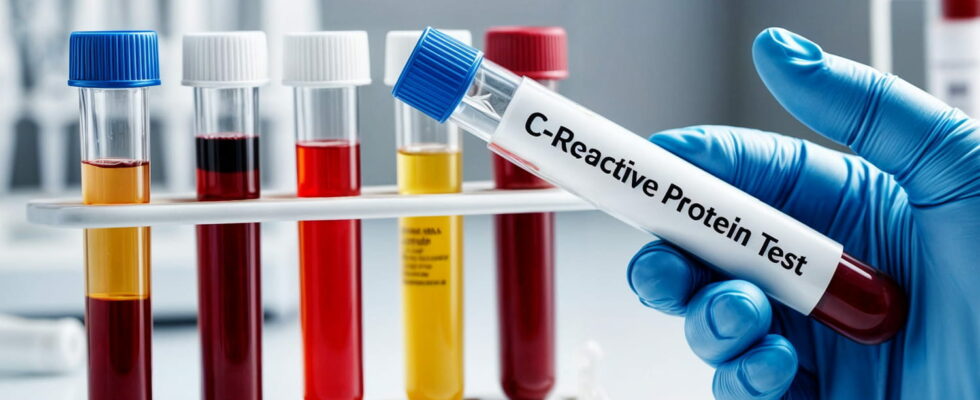The CRP level for a cancer depends on several factors including its size and stage.
C-reactive protein (abbreviated CRP) is a protein secreted by the liver and released into the blood a few hours after the onset of inflammation, injury, or infection. It is used as a biological marker that is measured using a blood test to look for inflammation or infection in the body, monitor the body’s response to treatment, monitor the progression of a chronic disease, and help diagnose cancer since cancer is almost always accompanied by inflammation.
A normal CRP level (for a healthy, non-smoking, non-overweight, non-pregnant person) is less than 6 mg/L. Above this level, monitoring should be considered.The CRP level is higher the more severe the infection or inflammation. For example, in the case of a minor infection, the CRP elevation will be slight to moderate.“, explains Professor Patrick Marcellin, hepatologist at Beaujon Hospital in Paris. On the other hand, its level can increase considerably (exceed 40 or 70 mg/L) in the event of a more severe inflammatory reaction, for example in the case of cancer, particularly Hodgkin’s lymphoma, sarcoma, lymphoma and carcinoma.
The CRP level for cancer depends on several factors: the stage of development of the cancer, its extent, the existence or absence of metastases and the type of cancer. Several scientific studies including one published in the Respiratory Diseases Review measured the mean CRP level in cancer patients:
→ In case of lung or bronchial cancer, the average CRP level is 39 mg/L
→ In case of skin cancer (squamous cell carcinoma), the average CRP level is 72 mg/L
→ In case of leukemia, the CRP level in the blood can reach 40 mg/L
→ In case of prostate cancer: the average CRP level ranges from 12 mg/L for localized prostate adenocarcinoma (ADK) to 133 mg/L for metastatic prostate ADK.
An increase in CRP levels is not the only parameter taken into consideration by doctors when diagnosing cancer. There are also other signs such as rapid weight loss, unusual fatigue, the presence of lymph nodes and persistent pain. Other abnormalities are observed in the blood count (CBC) such as a high level of white blood cells, a decrease in the level of platelets, a decrease in the level of red blood cells… A high CRP level is therefore not necessarily a sign of cancer. There are a multitude of causes that can raise the CRP level, ranging from simple trauma (burn, injury), to chronic stress, to benign or more serious bacterial infections.
“It just means there is inflammation somewhere. […]. So when you have a high CRP, there is no point in imagining the worst, it is necessary to wait for additional tests. to know the precise origin of the inflammation. It will be necessary to repeat the clinical examination (questioning, additional analyses) to look for the disease (digestive pathologies, chronic viral infections, rheumatic pathologies, etc.) responsible for this increase” reassures the specialist finally.
